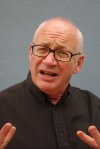Michael Malone is one of the best known and most respected figures in the Australian IT and telecommunications industry, and iiNet one of its greatest success stories.
Malone said he made his decision to leave the company while on his extended leave in South America. “Over the past three months, I’ve had the opportunity to pursue activities I’m passionate about, and taken time out to meet many inspirational individuals from across the globe.
“During this time away from the business, it became clear to me leading iiNet and its passionate staff requires 24x7 commitment, energy and enthusiasm.
“I have been able to achieve that for over 20 years, but have come to the point where I want to dedicate my time to other opportunities.
“I spent three weeks in Argentina wandering around in the mountains with no telephone or Internet access. That have me time to reflect on where I wanted to go in the future. The thought of coming back and doing it nine to five just didn't thrill me.
|
|
“It’s never easy to say goodbye, but this is an ideal time to leave – iiNet is in the best financial shape it has ever been and has a strong growth plan for future success.”
iiNet has indeed gone from strength to strength in recent years. Its most recent financial results, for the last half of calendar 2013, saw net profit after tax was up 19% to $31 million, on revenue growth of 4% to $493 million. That means it is pushing a billion dollars a year. Along with rivals TPG and M2, it is one of the few baby telcos to pull away from the pack and challenge the Big Three.
“I have taken great pride in the company that we have built,” said Malone. “I know iiNet management and staff have the ability, energy and vision to keep building the business, and providing our customers with amazing service.
“It will be incredibly hard for me to move on but I plan to keep a strong relationship with the company and all of its staff, many of whom are close friends.”
Malone has no doubt taken advice and inspiration from his friend and colleague Simon Hackett, founder of Internode, which iiNet acquired in 2011. Hackett has been in the news recently with a number of high profile activities, including the financing of electric racing cars. That sounds like much more fun than running a telco.
iiNet chairman Michael Smith said: “we don't know how Michael has managed to sustain his passion over such a long time. We are incredibly proud of his achievements. He is a legend and a telecommunications visionary. He has been the foundation of iiNet’s success. We are committed to ensuring his legacy lives on through a continued commitment to service excellence, challenging the status quo, thinking for ourselves and growing.”
CFO David Buckingham will continue to act in the role of acting CEO. “In the interests of sound corporate governance, the board will be conducting an international search for a new CEO. “The board will ensure that the next iiNet CEO is the best available. If that turns out to be David, we will be delighted,” Smith said. “We will appoint a search firm in the next few days and hope to conclude the process before 30 June.”
Malone started iiNet with Michael O'Reilly in the proverbial garage in Perth in 1993. It was one of Australia’s first independent ISPs, when the web browser had not even been invented. It was the right idea at the right time. iiNet rode the Internet boom of the 1990s. In 1998 Malone brought out his partner, and floated the company on the ASX. The money from the float was used to buy out many smaller ISPs, mostly in Western Australia.
iiNet started offering ADSL in 2000, and was able to continue buying small ISPs cheaply after the tech crash of the early 2000s. It acquired Kiwi ISP ihug in 2003 and the residential business of Ozemail in 2005. But it had expanded too quickly and had a near death experience in 2006, when its shares were suspended from the ASX.
The company recovered with investments from Amcon and PowerTel. It acquired Westnet in 2008, and NetSpace and AAPT’s consumer business in 2010. Then in 2011 it acquired Adelaide based Internode and TransACT in Canberra, making it Australia’s largest ISP after Telstra.
Malone still owns nearly 6% of iiNet, which makes him worth $70 million. His resignation did not affect the company's share price, which actually rose slightly during the day.









































